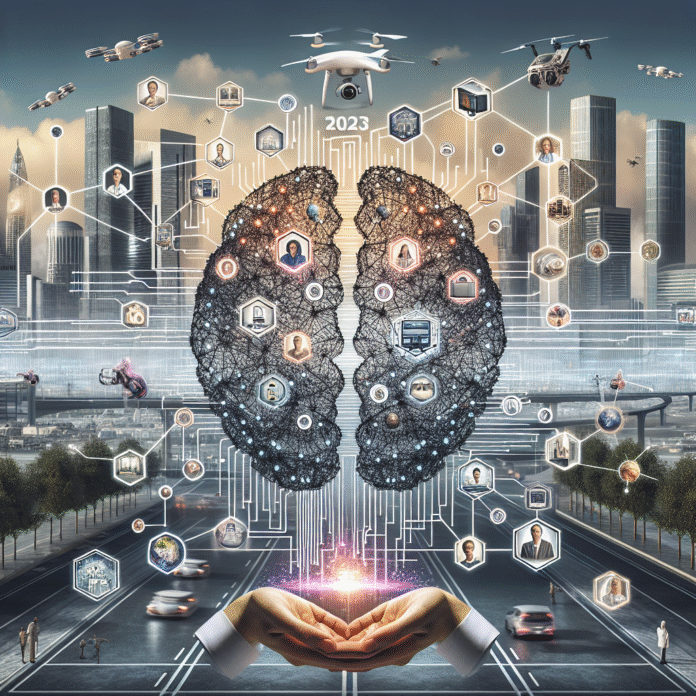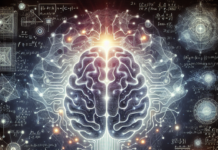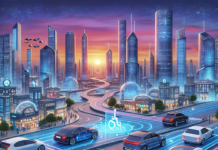Revolutionizing Industries: The Transformative Power of AI in 2025
As we progress through 2023, artificial intelligence (AI) has emerged as a transformative force reshaping industries across the globe. The integration of AI technologies into various sectors has not only enhanced operational efficiency but has also revolutionized the way businesses interact with customers, analyze data, and innovate products and services. This article explores the significant advancements in AI and how they are redefining several key industries.
1. Healthcare: Precision Medicine and Predictive Analytics
AI is making significant strides in healthcare, enabling personalized medicine and enhancing patient outcomes. Algorithms analyze vast amounts of genetic data, helping to identify the most effective treatments for individual patients. Predictive analytics tools can forecast disease outbreaks and patient admissions, allowing healthcare systems to allocate resources more effectively.
Telemedicine, powered by AI-driven chatbots and virtual assistants, is also gaining popularity. These technologies can provide patients with immediate responses to health inquiries, streamline scheduling processes, and even assist in diagnosing common conditions, all of which improve accessibility to care.
2. Finance: Automation and Risk Management
The financial sector is experiencing a profound transformation through AI-driven automation and sophisticated risk management tools. Machine learning algorithms analyze market trends and consumer behaviors, enabling investment managers to make informed decisions and optimize portfolios.
Fraud detection systems powered by AI are becoming increasingly effective. By monitoring transactions in real-time, these systems can identify anomalies and flag suspicious activities, thus providing an added layer of security. Additionally, robo-advisors are emerging, offering personalized financial advice based on individual risk profiles and goals, democratizing access to wealth management services.
3. Manufacturing: Smart Production and Supply Chain Optimization
In manufacturing, AI is at the forefront of the Industry 4.0 revolution. Smart factories utilize AI and the Internet of Things (IoT) to create interconnected systems that enhance production efficiency. Predictive maintenance powered by AI can foresee equipment failures before they occur, thereby minimizing downtime and repair costs.
Moreover, AI systems optimize supply chain operations by predicting demand fluctuations and automating inventory management. This results in reduced waste, improved delivery times, and enhanced customer satisfaction, ultimately driving profitability.
4. Retail: Personalized Shopping Experiences
The retail sector has embraced AI to create personalized shopping experiences that enhance customer engagement and loyalty. AI algorithms analyze consumer preferences and shopping behaviors to deliver tailored product recommendations, making marketing strategies more effective.
Face recognition technology and AI-driven analytics provide brick-and-mortar stores with insights on customer demographics, helping businesses optimize store layouts and inventory. Online retailers can leverage chatbots for real-time customer support, enhancing the shopping experience and driving conversions.
5. Transportation: Autonomous Vehicles and Route Optimization
AI is reshaping the transportation industry, particularly through the development of autonomous vehicles. Companies like Tesla and Waymo are pioneering self-driving technologies that promise to transform urban mobility and reduce traffic accidents.
In logistics and delivery, AI algorithms analyze traffic patterns and weather conditions to optimize routes, significantly reducing fuel consumption and delivery times. These advancements contribute to a more efficient and sustainable transportation ecosystem.
6. Energy: Smart Grids and Predictive Maintenance
The energy sector is leveraging AI to improve the efficiency of resource management and promote sustainable practices. Smart grids utilize AI to optimize energy distribution, managing supply and demand in real-time to reduce reliance on fossil fuels.
Predictive maintenance models for energy infrastructure, such as wind turbines and power plants, help operators minimize outages and extend equipment lifespan. This foresight not only improves operational efficiency but also supports the transition to cleaner energy sources.
7. Education: Personalized Learning and Administration Efficiency
In education, AI is personalizing learning experiences to cater to individual student needs. Adaptive learning platforms assess a student’s progress and tailor content accordingly, ensuring that learners receive the support necessary to succeed.
AI is also streamlining administrative tasks such as admissions and grading, allowing educators to focus more on teaching and less on paperwork. Furthermore, predictive analytics can identify students at risk of dropping out, enabling timely intervention to support their continued engagement.
Conclusion
In 2023, AI is no longer a fledgling technology; it has become a cornerstone of innovation across industries. The transformative power of AI enhances efficiency, personalizes experiences, and drives meaningful change in how businesses operate. As industries continue to embrace these advancements, the future promises not only a more streamlined economy but also a redefined relationship between technology and society. As we stand on the precipice of this AI-driven revolution, the opportunities for growth and innovation are limitless.
More read- Revolutionizing Industries: AI’s Transformative Power Redefines 2023







